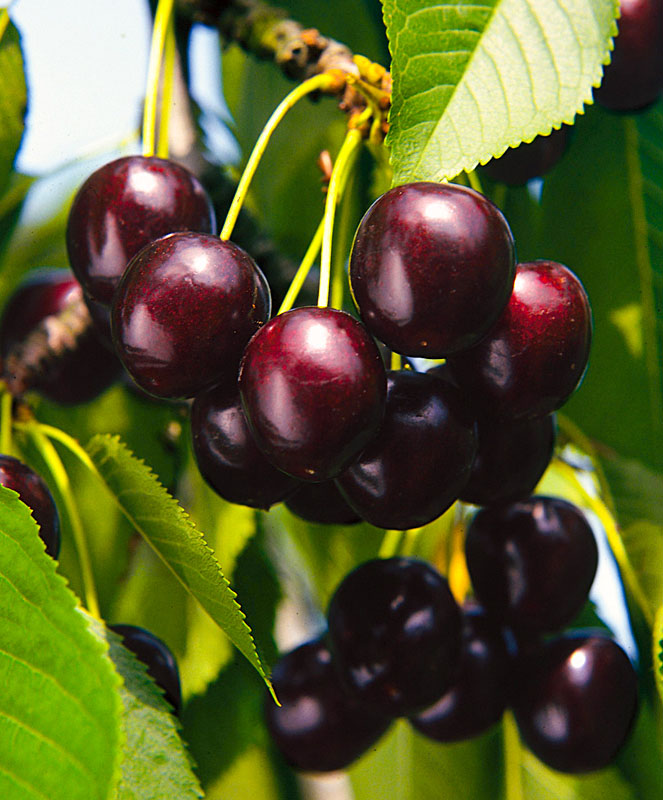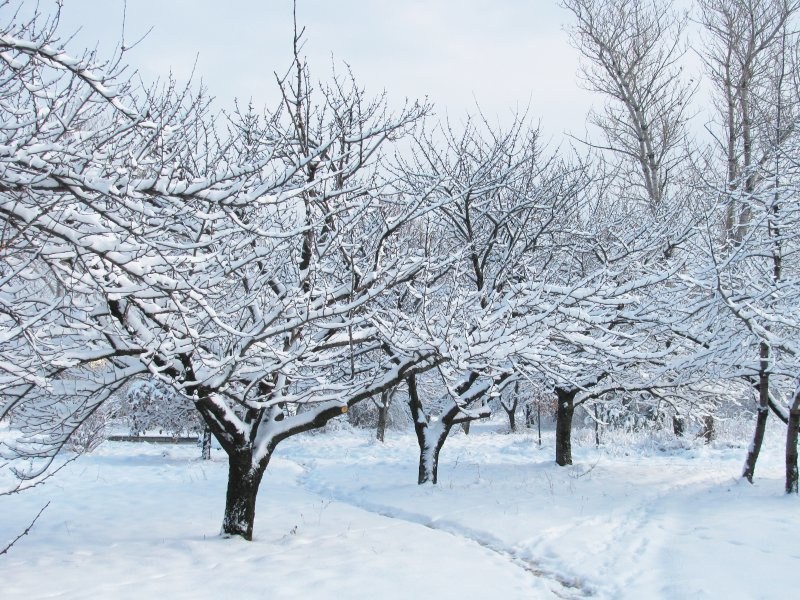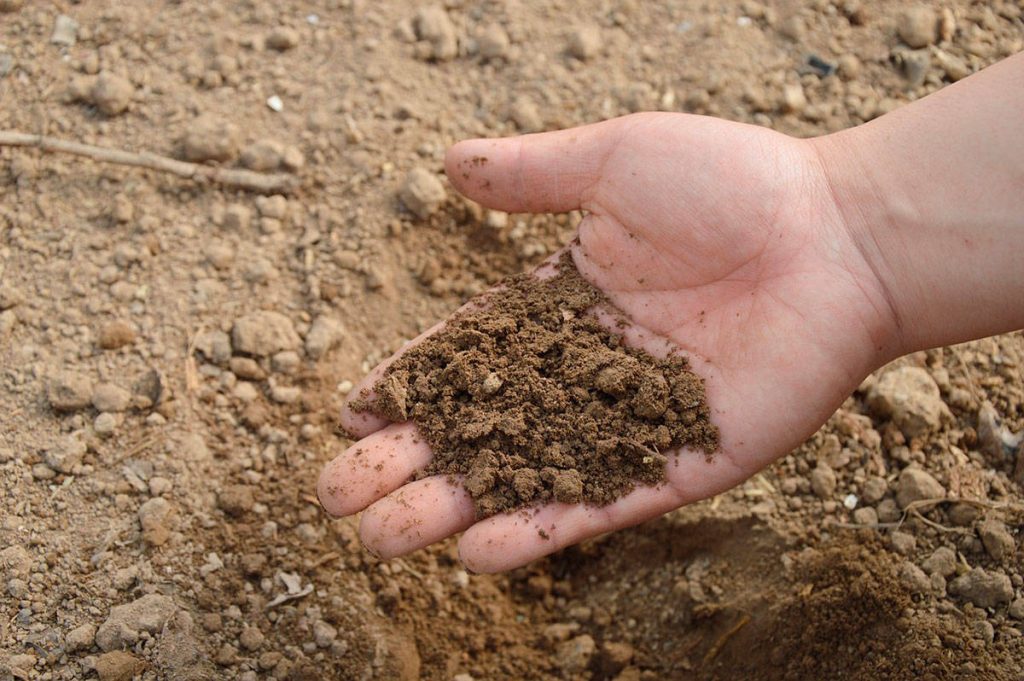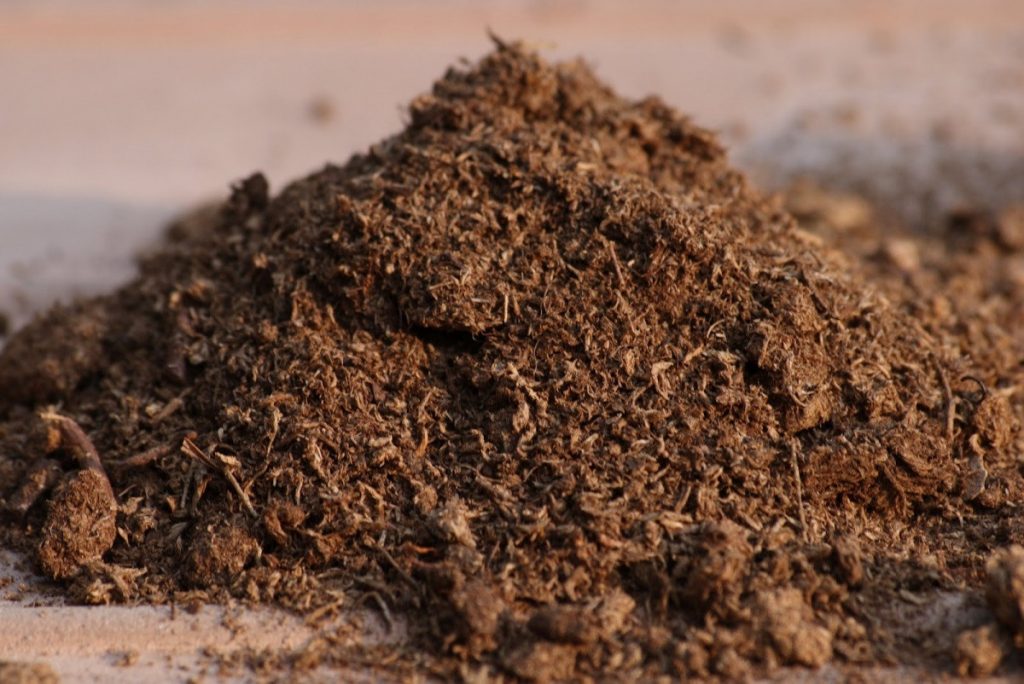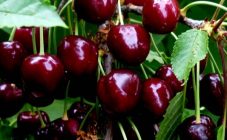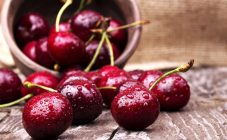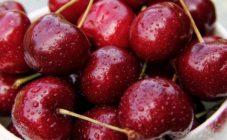Content:
Previously, cherries were grown mainly by summer residents with plots in the southern regions. In places with a harsher climate, thermophilic trees did not take root due to severe frosts. Selection does not stand still, and thanks to the diligence of specialists, a number of varieties have been developed that can be grown in harsh climatic conditions. It is to them that the Revna cherry belongs.
A bit of history
The staff of the Bryansk VNIIII Astakhov A.I. and Kanshina M.The. can be called the parents of a frost-resistant cherry variety. The Bryansk rose variety of the fruit tree became the ancestor of the culture. The mother plant passed on to its descendants a number of its best qualities, which include:
- resistance to fungal diseases;
- high productivity;
- immunity to frost;
- fruits of excellent quality;
- berries practically do not crack.
Characteristics and description of cherries Revna
The tree is of medium height, its branches are prone to active growth. Crown type - pyramidal, strong, medium thickening. The branches are of moderate thickness and grow straight. Vegetative buds have an ovoid shape, flower buds are more rounded.
The leaves are large, the edges are strongly serrated, the apex is pointed, the color is dark green. In the spring, small white flowers appear on the tree, having the shape of a bowl. The fruits are mainly formed on bouquet branches. In some cases, ovaries may appear on the basis of a one-year shoot.
The fruit is medium in size, flat-round in shape, with a small white dot at the top. The average weight of one berry is 4.7 grams. The fruit has a dense, shiny skin that is almost black in color. If you look at a section of a sweet cherry, you can see a dense dark red flesh. The bone is separated from it without much effort.
Revna is a mid-late variety and begins to bloom in mid-May, you can start harvesting in late June - early July.
It will be possible to get the first fruits from a planted tree only after 5 years. Revna is classified as a variety with low early maturity. Yields are very high, with mature plants yielding approximately 14 kg of berries per tree. During ripening, the skin does not crack, the berries are easy to transport over long distances.
Separately, mention should be made of resistance to frost; during the most severe winter in the middle lane, a slight freezing of trees was noted. In extreme heat, stems and branches very rarely get sunburn.
Planting cherries
It is best to plant trees in the spring. Despite the presence of long shoots, even in annual seedlings, they can die due to low temperatures. In winter, water freezes from thin branches, and roots that have not yet taken root after autumn planting simply cannot supply the required amount of moisture to the branches.
You can plant Revna in spring a few days after the soil thaws. It is not worth delaying the work, especially if the seedling has already blossomed in the place where it grew earlier.
Landing space
When choosing a site where cherries will grow, you need to pay attention to the air flow and illumination of the area.The tree does not like the cold north wind, and therefore it is recommended to pay attention to the southern slope, where cold streams will not stagnate.
Ground requirements
Fertile loams and sandy loam soils are ideal soil for cherries. If there is such a soil on the site, the first three years after planting the culture, you can not make additional fertilizing.
Clay, sandstone, or wetland are not suitable for Revna. The tree may be a moisture-loving one, but prolonged stagnation of water and a lack of oxygen lead to the death of the seedling. In sandy soil, water will not linger, and therefore, even with frequent watering, there is no guarantee that the seedlings will take root well.
Subtleties of care
The yield will depend on the amount of watering. The soil should be moistened on average once a month, depending on weather conditions and soil moisture. If the weather is rainy, it may be necessary to make several drainage holes, where excess water will accumulate. But in dry times, the trees will have to be watered 4 times a month.
Fertilization
For cherries you need the following fertilizers:
- urea;
- phosphorus;
- superphosphate;
- lime;
- potassium.
Most gardeners have come to the conclusion that rotted manure is the best top dressing. Humus is added once every 2.5 years. You can fertilize the soil in the spring and autumn months, and this should be done at the time of digging up the earth.
How to prepare trees for wintering
During the preparatory work, it is necessary to dig up the soil with mandatory watering. Such actions will allow the root system to receive a sufficient amount of oxygen in winter and to feed the branches that are defenseless against frost.
Spruce branches are used to protect the trunks, which will not allow rodents to damage the cherry bark. If pruning was carried out, all cuts should be treated with copper sulfate.
Rich harvests of delicious berries are obtained from Revna cherries. To get fruit, you need to regularly water the trees, fertilize and prune. An important role will be played by good pollinators planted nearby, without which a rich harvest will not work.
